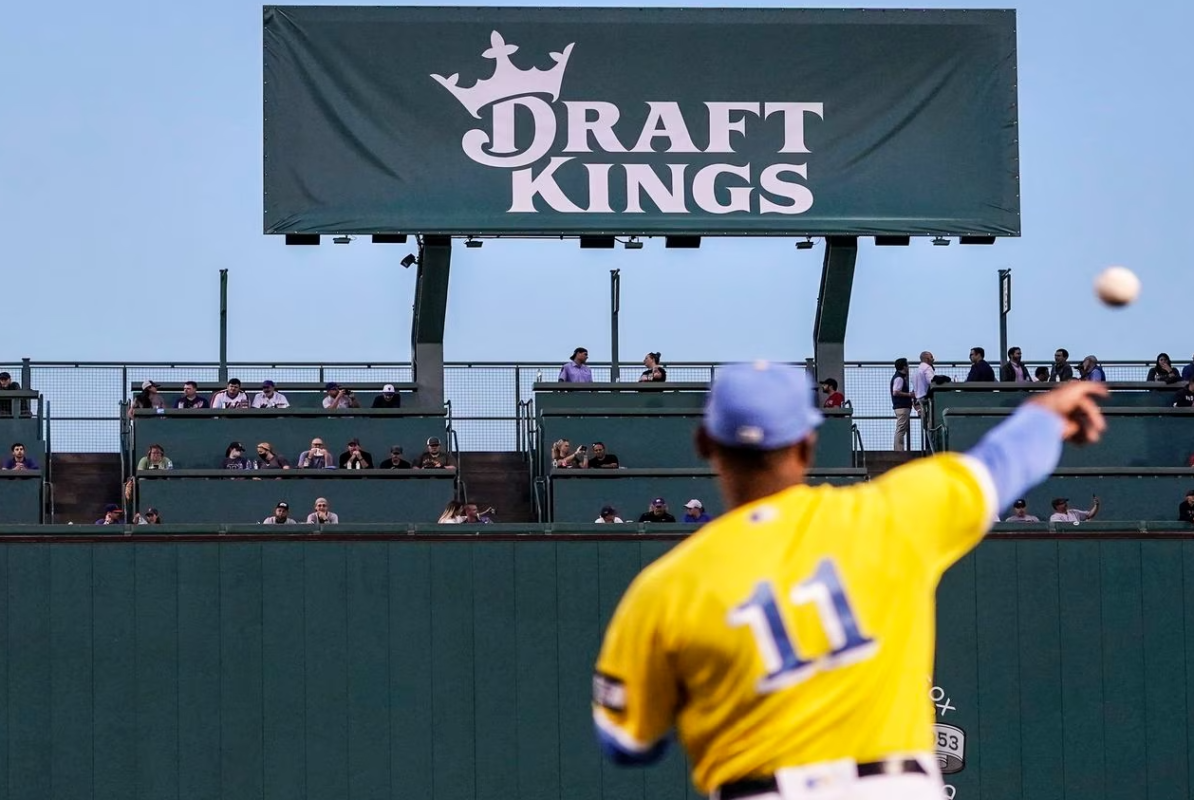New Post
‘Really annoying’ sports betting ads are protected by 1st Amendment, lawmakers say
The fire hose of sports betting advertising in Massachusetts should slow down once March Madness finishes, and taking any action to restrict the commercials may raise questions around First Amendment rights, the two top state lawmakers focused on consumer protection said in interviews.
A wave of sports betting commercials broke over the state after the launch of legal mobile wagering at the start of March. From David Ortiz to Rob Gronkowski, local sports heroes have appeared in advertising spots to promote one of the many online sportsbooks that have come online just as the NCAA’s March Madness kicks into gear.
While some advocates and legislators have raised concerns about the content and volume of advertising, Consumer Protection and Professional Licensure House Chair Rep. Tackey Chan said it is only a matter of time before the number of promotions eventually ebbs.
And any effort to restrict the level at which sportsbooks promote their products on TV, social media, and streaming platforms may infringe upon their First Amendment rights, the Quincy Democrat said.
“How close do we tip into regulation or public health, public safety regarding business advertising that doesn’t violate their First Amendment rights but is able to continue to do to business?” Chan said.
Consumer Protection and Professional Licensure Committee Senate Chair Sen. John Cronin agreed.
“I think they’re really annoying. I’m looking forward to them slowing down and I think that’s exactly what’s going to happen. I think there’s been this deluge because it’s a new market and it’s March Madness,” the Lunenburg Democrat told MassLive. “I think over the next few weeks and months, we’re gonna see the paid advertising really be curbed and we’re going to see less and less. And I think we’re all looking forward to that.”
Lawmakers and regulators have required sportsbooks to place responsible gambling disclosures alongside their advertising. Chan said disclosures, “we can make them do. That’s just straight up consumer public health, public safety.”
“The question is can we justify a limitation on advertising that doesn’t inhibit their business but satisfies public health, public safety, consumer … protection,” he said.
Local sportsbooks have pushed back on criticisms that they are advertising too much. The companies argue they have to build a customer base from scratch while competing with each other and the illegal betting market.
In a previous statement to MassLive, a spokesperson for DraftKings said the marketing of regulated sports wagering products in Massachusetts “is critical to the success of transitioning bettors away from the dangerous illegal market and introducing them to legal operators” that also offer responsible gambling tools and consumer protections.
And Chan said sports betting advertising will likely slow down once sportsbooks have “hit a certain saturation, level of subscriptions.”
“Their advertising is going to change,” he said. “It has to change. It’s a business issue at that point.”
Still, some are worried that the advertisements — visible on nearly every medium — are indirectly falling into the hands of at-risk groups like young adults and mislead consumers when publicizing promotional bets.
Victor Ortiz, the head of the Department of Public Health’s Office of Problem Gambling Services, said the level of advertising is concerning to “a lot of folks that we’ve heard from.”
“In Massachusetts, if you’re breathing you’re going to see [the ads],” he said.
Ortiz’s office runs the Massachusetts Problem Gambling Helpline, which sportsbooks are required to promote in their advertisements. He said officials are tracking calls to the helpline and are looking at the data on a daily basis.
But it is too early to tell if there has been an uptick in calls since sports betting launched in the state.
“We’re not ready to state whether we see an uptick or not, but we are monitoring that,” he said. “The other thing that really comes about is that even if you see a spike up, is it really geared towards increasing problems, or is it because there’s increased awareness of the number? So there’s some nuance there that we need to kind of dig down.”
Cronin said there is not a need “at this time” to pursue restrictions on sports betting advertisements.
“There’s a Constitutional issue,” he said. “These companies have a right to advertise their products. And unless we’re seeing deceptive advertising methods, I don’t think there’s a cause or concern right now for restrictions.”
Sen. John Keenan filed legislation that takes aim at what he has described as “deceptive” sports betting ads. The bill would bar sportsbooks from using language that misrepresents a person’s chance of winning in advertisements publicizing promotional bets.
That proposal is before Chan and Cronin’s committee.
“The Legislature has every right to be thoughtful with reviewing everything,” Chan said when asked if state lawmakers should consider further laws around sports betting advertisements.
Top officials at the Massachusetts Gaming Commission, which the Legislature tasked with standing up and regulating the state’s sports betting, have said they plan to curtail the number of commercials delivered specifically to at-risk groups.
Ortiz said it was a different experience when the state legalized casino gambling in 2011. The first slot parlor, Plainridge Park Casino, would not open until 2015 and resort casinos would not come online until 2018.“One of the biggest differences then was that each of these casinos were not opened at the same time. They were opened one at a time,” he said. As for sports betting, “I think the velocity of having so many operators in one space, all advertising at the same time is why you have what you have.”

